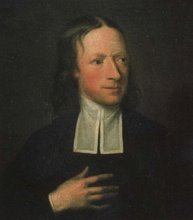The Journal of Charles Wesley
Introduction
By Thomas Jackson
1849
RELIGIOUS projects and actions not unfrequently produce results which their authors never contemplated. When the two Wesleys at Oxford became impressed with thesupreme importance of Christian piety, as the great end of their being, and regarded it as an absolute conformity to the will of God, they adopted the purest rules of conduct; keeping a constant watch over their minds and hearts, and subjecting themselves at stated periods to the most searching scrutiny; that they might ascertain whether or not they had fulfilled their sacred vows, or had trifled with their engagements and sponsibilities. That they might be the better able to discharge the duty of self-examination, each of them commenced the practice of keeping a journal, in which they carefully recorded the events of every day, with their spiritual conflicts, victories, and failures; for the purpose of calling forth increased gratitude, humility, or emotion, as the case might be. Of course these personal and moral histories were, in the first instance, never intended to meet the public eye, but merely to promote the religious benefit of the writers; for, when these simpleminded, but gifted, men began this practice, they intended to spend their lives in comparative retirement and seclusion, not having the most distant thought of the notoriety which was afterwards forced upon them.
In these matters, however, they were overruled, being providentially called from the cloisters of Oxford to preach salvation by faith in the highways and hedges; in consequence of which the world was filled with the report of their names and doings; and their journals, which were designed to be nothing more than a record of their feelings and course of action, the details of which no second person should ever peruse, are, in fact, the most circumstantial and authentic history of a deep and widely-extended revival of religion, such as the world has scarcely witnessed since the apostolic times. Hence it is that these documents, so private and unpretending in their origin, possess a profound interest, which they will possess as long as the English language is understood, and Christianity in its blessedness, activity, and power is duly appreciated.
After the brothers had entered upon their singular career of ministerial labour, so as to be in some quarters highly commended, and in others severely censured,--while multitudes wondered why it was that gentlemen and scholars violated all the rules of ecclesiastical etiquette, and voluntarily endured incredible toils and hardships,--Mr. John
Wesley deemed it requisite to publish from time to time large extracts from his private journal, as furnishing, in his estimation, the best explanation and apology that he was able to offer. This practice he continued till the end of his life: and, notwithstanding all that has been subsequently written, it must be confessed that these artless narratives constitute the best history of the origin and progress of Methodism, and its most powerful defence.

No comments:
Post a Comment